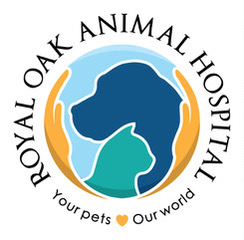Library
-
Box turtles can make great pets if cared for properly. With proper diet and housing, captive box turtles usually live up to 20 years of age, but some have been reported to live 30–40 years. This article outlines some general information about box turtles, including how to choose a healthy turtle, turtle anatomy, salmonella concerns, and recommended veterinary care.
-
It’s essential that pet fish have the proper environment to survive and thrive. Most fish require the same basic things for their aquarium, but there are slight differences depending on if you have freshwater and saltwater fish. This article outlines the key considerations in creating an aquarium environment for your fish.
-
A telemedicine visit is typically conducted over telephone, text messaging, chat, email, or videoconference. This may allow a veterinarian to diagnose and treat your pet’s medical condition remotely, without the need for an in-person visit. Your appointment will be conducted by a licensed veterinarian.
-
Do you have medications stored in the bathroom cabinet, kitchen drawer, and pantry shelf? Are random bottles haphazardly tossed into the “pharmacy”? Medications are meant to help us and our pets, but they can do more harm than good if stored or administered incorrectly. You can protect your family and pets by safely handling and disposing of medications.
-
The family of Colubrid snakes comprises over 1,000 different species. Most individuals in this family of snakes, except the boomslang snake, are non-venomous. Colubrids generally make very good pets and come in a variety of colorful patterns.
-
While there are many species of pythons and boas, those noted here are among the easiest to keep. However, constrictor snakes, like the very large, reticulated python, can be dangerous in the hands of an inexperienced keeper, while others, such as the royal python, can be frustrating because of their long periods of not eating.
-
It is key for the health and safety of all snakes that proper housing be planned for the eventual adult size of your pet snake. For their enjoyment, hide boxes and branches are beneficial additions to the caging environment. Proper bedding, lighting and heat sources will differ depending on the species and size of your snake.
-
Telehealth is a broad term that refers to the use of telecommunications to provide health-related services. Telehealth services can be delivered by a variety of methods including telephone, text messaging, internet chat, and videoconferencing. Telehealth, including teletriage and telemedicine, can supplement in-person care and can provide a safe and practical method of receiving some veterinary care during times of physical or social distancing.
-
Telemedicine is the act of practicing medicine at a distance. Telemedicine can be offered in several different ways: telephone calls, text messaging, online chat, email consultations, and visits conducted through videoconferencing programs. While it is impossible to perform a complete, comprehensive exam during a telemedicine appointment, in many cases your veterinarian can gather enough information to arrive at a reasonable diagnosis and start treatment.
-
Complete and accurate medical records are like a medical diary for your pet. The ability to review your pet’s medical history before the first appointment will allow your new veterinarian to provide exceptional care that is tailored and timely. You can request that your previous veterinary clinic send your pet's records to your new veterinarian.


